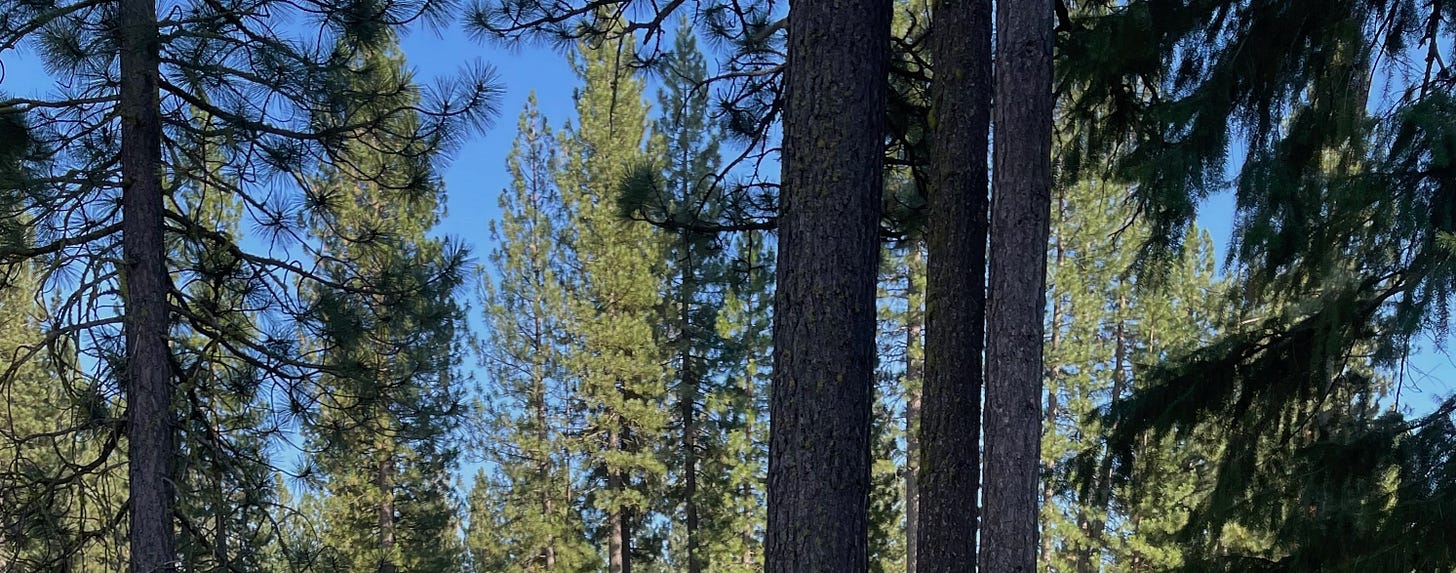Hi friends,
This week for a change of pace from citizenship, reporting the news and other rambling topics, I thought I’d share a tiny slice of a story I am working on. This snippet takes place in 1971 in California: the Vietnam War casualties were presented on the nightly evening news while at the same time protests against the war were widespread. Our main character is just 13, trying to make sense of her changing world.
April 24, 1971: March on Washington D.C., by around 500,000 anti-Vietnam war protesters. Another 125,000 march in San Francisco. It became the largest demonstration against a United States war in history.
May 3, 1971: 13,000 anti-Vietnam war protesters are arrested by the Nixon administration in 3 days. Also, the Harris Poll shows that 60% of Americans are against the Vietnam War.
June 13, 1971: Excerpts from the Pentagon Papers begin to be published by The New York Times. The Pentagon Papers were classified documents that carried information on the United States’ involvement in Vietnam.1
August 5, 1971: Towards the end of summer, Jody and I were sitting in the shade not too far from the lake. We were still in our swimsuits, having just a few minutes earlier moved from a sunny rock where we had been drying off after our morning swim. The mountain air was clear and warm, buzzing faintly with flies and distant screeching jays. The sky was brilliant blue the way it is when the air is thin and the altitude high. The lake rippled quietly, only the largest wakes from a far off boat making it lazily to our pebbled shore. A breeze high up in the surrounding pines barely registered below, only noticeable when a few needles fell on our arms, or the sunlight on our laps shifted patterns as the branches fluttered above.
We were staying at a rustic camping area on land owned by a group of families. I was here as Jody’s guest, and loved the quietness of camp. There wasn’t a lot of noisy organised activity with this group. Everyone seemed content to read, swim and relax away from the hustle of our normally busy lives. We had been here almost a week already, spending our time mainly swimming, hiking, and quietly singing our favourite popular songs to each other in between reading stacks of books.
As it neared lunchtime, kids and grownups wandered towards the main gathering area in camp where meals were prepared and eaten. Several picnic tables, a fire ring, a few standing metal barbecues, wooden storage lockers, and a couple of water faucets poked up randomly out of the dirt-floor clearing in the pines. Many of these implements were weathered with moss or rust and seemed to be slowly returning to the earth.
The camp had minimal electricity, no TV or radio, and this was decades before the Internet, wifi, and mobile telephones. Once a day someone would drive into the nearby town and pick up any needed food or other supplies, and always bring back the daily newspapers. As Jody and I were getting out the bread and fillings for sandwiches, and mothers were directing younger children in their lunch preparation tasks, the daily papers arrived.
Today was the day newspapers published the yearly military draft numbers. The draft was a nationwide lottery: every day of the year was given a number from 1-365 in a random order; your birthdate was your number. Every boy turning 18 in the next year was required to register for the draft, and your birthdate/number determined how likely you were to be called up to join the services. With the Vietnam War continuing to escalate, most of the numbers from one through the 200s were getting called up each year, these new recruits inevitably and quickly sent off to the war.
With several families staying here this week, there were half-dozen boys of draft age or close to it. Mothers and fathers of the older boys moved towards the papers. Younger brothers and sisters goofed around playing tag or throwing balls, but stayed nearby too. The parents and the older brothers looked first. A few sighs of relief showed, also a few tense frowns. There were whispers amongst the young men, these lifelong brothers, cousins and friends. The parents froze their expressions trying to hide their worry. Even if their own son wasn’t high on the list, then it might be their nephew, or a friend’s son who had grown up playing in their house, eating dinner on Friday nights with their family for over a decade.
No one spoke loudly. The day stilled across the nation. If you were a boy born in 1952 in the United States, what would happen the rest of your life depended on the number printed on that page, that day.
Like most everyone not a boy or of draft age, I imagined ‘what if’. What if I had been a boy becoming eligible for the draft in 1972? I would have been looking at that list in 1971, to see what my number was. I would learn if I was able to plan a life after high school graduation, likely college, or perhaps my future was now written, out of my hands.
After everyone had looked at the lists, and the papers were unattended, Jody and I snuck a look at the list to see what our birthday numbers were. My number for that year based on my August birthday was 365. My chances of being drafted would have been very low. If I had been a boy just one year older, and looking at the same list the year before, my number would have been 58. I definitely would have been drafted.
The rest of the day remained quiet and subdued around the camp. Jody and I left the clearing after lunch to read quietly by ourselves near our tent in a secluded grove of trees. We still had several books to finish before we started our new school in a few weeks. Although we were cramming to get all our summer reading done, I struggled to focus on the words that were just a blurry collage on the page. What if had become, who next? Who might we be missing here next year? Who of these brothers and cousins and friends-like-brothers were we going to lose in the body count that previously seemed so distant? Who were the grown-ups going to be worrying about and possibly making the whispered alternative plans?
We stole glances at the boys, now and then. The older boys hung together in small groups, talking quietly. A couple of them swam in the lake out to the floats and back, racing to see who was fastest, panting back on shore after the sprints, their young, tanned and fit wet bodies glistening in the sun. Another pair bounced basketballs and shot hoop after hoop on the makeshift court, as if sinking one more basket could hold off time, and keep the carefree days of summer going just a little longer.
Thanks so much for reading today. I’d love to hear your thoughts on the piece above! This was a memory for me that was very vivid, and I wondered if it has any resonance with any of you. I don’t really want to dwell on wars, it is a horrible fact in our lives. But I am interested in your thoughts and personal connections to the pervasive effects of wars, no matter how far away they seem.
Were you around during the draft in the US? Do you remember the lottery? Did you have brothers or others you knew who fought in any of the wars that have sadly been in our lifetimes? Do wars seem far off to you, or vividly close?
Now PLEASE move away from thoughts of war and move on to thinking about lovely music and flowers and the people we love.


There. That’s better.
Wishing you a carefree week ahead and joy in small pleasures. Thank you, as always, for joining me here.
xx Sabrina
If you know anyone who might like to read these posts, feel free to send this one their way. Just click this button here:
And if you aren’t subscribing already, here’s the button for doing that (it’s free!):
If you liked reading this, feel free to click the ❤️ button on this post so more people can discover it on Substack 🙏
Timeline of events taken from https://www.historic-newspapers.com/blog/1971-timeline/







We had what we called National Service during the Vietnam War and being US allies, Australian men had no option but to succumb. I was at university at the time and felt very obliged to march in Anti-Vietnam rallies because our attitude was that it was definitey NOT Australia's fight.
BUT, and here is the big but - I had a family member/friend at uni who had to serve and he was proud of the men with whom he served, proud of our defence forces and he bore mental scars that are still with him. I marched with him in a pro-Vietnam group just to give him emotional support. We were coated in flour and spat upon and jeered. All those servicemen who had quite simply done what they were ordered to do. Some respect would have gone a long way.
Many of the servicemen continue to suffer. Many have committed suicide. It was a tragedy then and a tragedy now. The war in Afghanistan has been no different. All wars scar participants on all sides for life.
I travelled to Asia during the vietnam War and as I toured, I met two US servicemen on R and R in Thailand - one a helicopter rescue pilot and one USAF but a mystery. They were not happy men - longed for their families, their wives and kids. Longed to go home. Sad as here was I, a carefree Australian heading through Asia and to Europe as if all the world were my oyster.
This is another reason I keep our family goalposts close and why I no longer want to hear or read news.
This post raised some enormous memories
Aw, walking down memory lane in the 70's. I grew up in California and graduated from High School in 1970. I was very much in the "make love, not war" camp, but didn't know anyone who had been drafted or gone there until I met my husband that same year, a young Marine just returned from Vietnam. It changed my perspective about so many things. Although he too was against the war, after having volunteered, experiencing its horrors, and returning home. Now I've just finished a novel about a California girl, an antiwar activist who travels to a country in Central America where she falls in with the leader of the revolution taking place there and learns that some wars are necessary. The United States was not only wrong about becoming involved in Vietnam, but about propping up corrupt dictators south of the border who exploited their people.